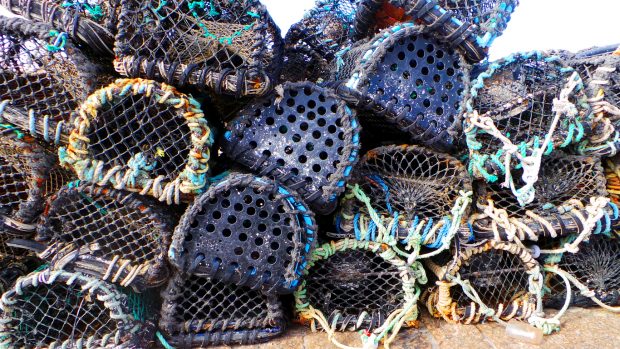Hot on the heels of our data entry blog Martin Arris tells us about his work as an MMO marine officer and the importance of the data upon which he relies.
The week will usually start with an enforcement meeting on Monday morning to discuss the events of the previous week and plan for the current one, including any issues and any new priorities. Our role encompasses many tasks from enforcement, investigations, marine licensing, education and grants through to the collection and assurance of fisheries data.
Fisheries activity data
A recent priority was the 790 outstanding trips in fisheries activity data, which needed completing for our year end statistics. This was made up of trips where no sales note was present for a trip, or sales notes present but no trip details, missing landing declarations, and trips where both were present but would not complete for some other reason. This data is extremely important as it is needed for analysis of fish stocks, effort, and as a commitment to the EU commission, but also to ensure that we make the correct decisions in everything from resource allocation to quota levels.

So, in the middle of a busy prawn season (ifish Stats -2016-2017 winter fishery will be higher than the 2015-2016 fishery, already within 4 tonnes of it with 2 months to go), ensuring we keep up with usual business, a new priority was allocated: to tackle the outstanding 10000 tonnes of fisheries products, and reduce this significantly by the end of January.
Registration of Buyers and Sellers (RBS)
Tuesday morning is a trip to Berwick to sort out a Registration of Buyers and Sellers (RBS) application with a merchant and a visit to the harbour to conduct enforcement of landings and verify catch data. On to Holy Island to inspect a marine licence for drainage work to the causeway, and then to the harbour to chase up some landing data. Only a few potting boats operate here, and none at sea today, but this is a chance to chat with local fishermen about issues they might be having and vice versa.
Minimum sizes must be checked
Seahouses is next and we arrive at the start of a busy hour of landings. Minimum sizes must be checked, as well as landings against logs and where the catch is loaded into a van to be transported away from the port, a transport document to be provided. Return to the office and chance for a quick break, followed by an evening monitoring prawn landings, and an opportunity to input some of the inspections and data collected that day.
Of course, we cannot visit everywhere every day, but most days can be as varied, and time has to be dedicated to completing the outstanding trips, we can drop into this work whenever there is some time available. The data entry team are usually the starting point for incomplete trips, recording each one that requires input from a marine officer on a spreadsheet, accessed regularly by us and prior to interrogation of the systems to discover the problem preventing a trip from completing. It may be something simple like a missing sales note or landing declaration, but it could be a complex series of mistakes in amounts, incorrectly linked trips, incorrect species codes or one species missing from one document which may lead to an investigation and prosecution. A quick call to a merchant will find the missing sales note but a vessel skipper is harder to contact, especially if at sea.
Contact with the industry key
Contact with the industry is the key to sorting out any issues and most are quick to correct any mistakes. There have been occasions where enforcement actions have been necessary to encourage compliance from persistent offenders, but most are one off events, and can be corrected with a little education in correct use of the system.
In the case of North Shields, our local auction had an upgrade to their computer that resulted in a glitch which entered the landing date as the sales date. Of course most trips that sold through that auction could not now complete and there were a lot of them. Of those that did complete most had to be pulled back to be adjusted.
The hard work, from both a dedicated data entry team and marine officers engaging regularly with industry to correct issues, paid off with a reduction in the outstanding 10,000 tonnes to 41 tonnes, and 790 trips to 8, whilst dealing with our busy day to day commitments.
3 comments
Comment by Sofidiya Oladayo posted on
I'm a Marine Biology student from the university of Lagos Nigeria , I wish to be connected with several marine scientists all over the world
Comment by carlharvey posted on
Hi Sofidiya - You can follow the work of the Marine Management Organisation (MMO) on our website Twitter, Facebook and linkedin.
Comment by Peter Terrington posted on
Very interested to learnt that the marine officer's week starts with an enforcement meeting. The problem is that the monitoring of marine licences is not picking up breaches of licence conditions. It is left to the general public to report suspected breaches. Unfortunately, the process seems to grid to a halt at this stage with no feedback to the members of the public, raising concerns. There needs to be greater openness and transparency on progress in following up complaints and feedback to those raising concerns. Currently these concerns seem to disappear into a black hole!
Peter Terrington
Wells, Norfolk